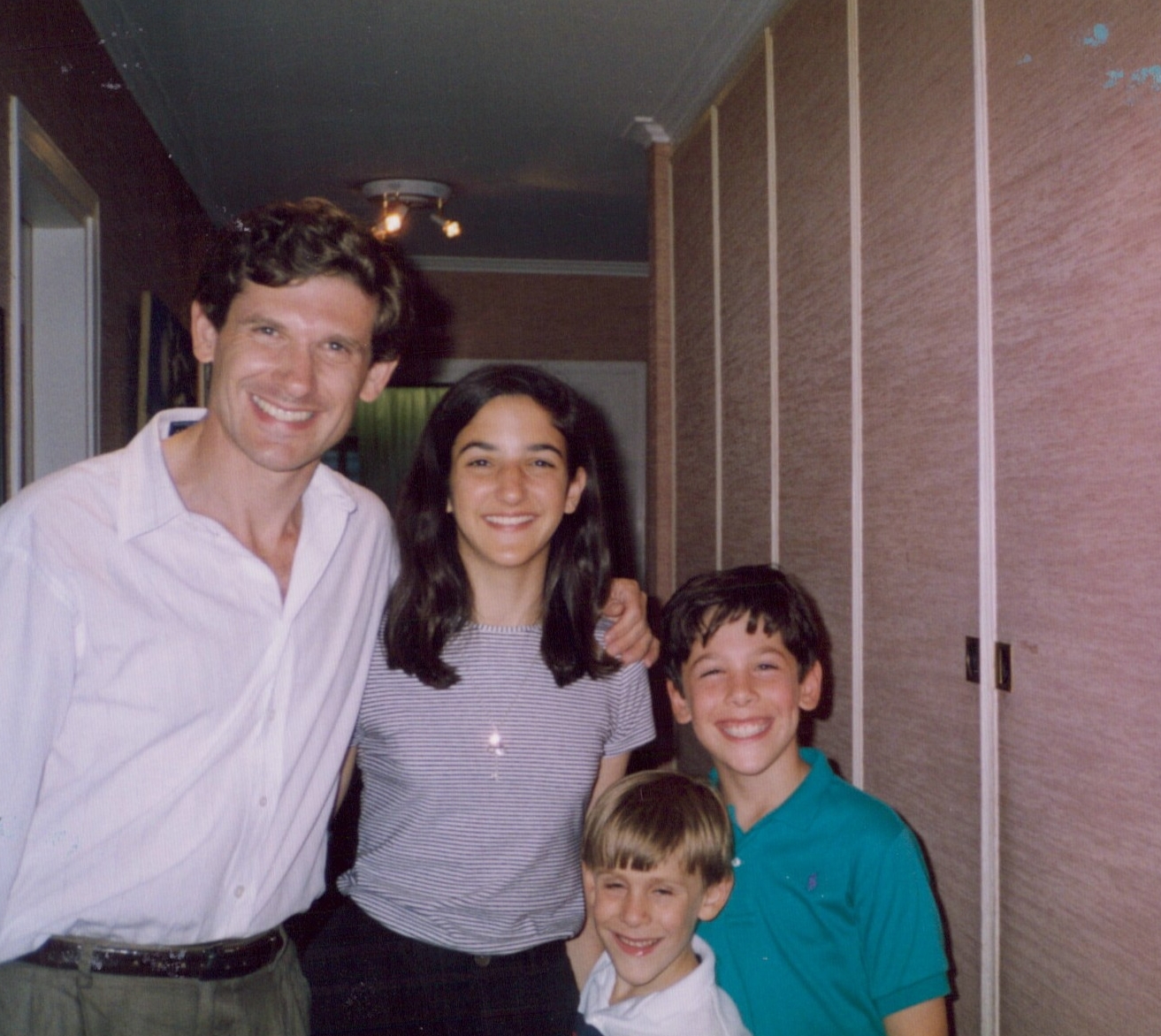Turning a Passion into a Purpose
Topic: Announcement, Hide on Homepage, Real Talk: Survivor, Patient & Family Stories, Your Source for Breaking News & Inspirational Stories

Jessica Newshel
I have unfortunately learned firsthand how pancreatic cancer can devastate a family. My beloved uncle, Jeffrey Rosenzweig, died from pancreatic cancer in 2006, and all of these years later, my family still feels the repercussions of his passing and the hold this disease has on us.
When Jeff was just 50, he was admitted to the hospital with severe back pain, and doctors ran numerous tests to determine the cause. And, even though back pain can be a symptom of pancreatic cancer, his diagnosis came as a complete shock to our family, as he was otherwise active and healthy. He lived five minutes away from my family when I was growing up and was my only uncle, and many of my favorite childhood memories involve him.
It was shocking to see someone so full of life, a busy dad with a family and a thriving business, decline so rapidly. His cancer had spread too extensively for surgery to be an option, so he underwent chemotherapy treatment and participated in a clinical trial. However, Jeff passed away just six months after his diagnosis and six weeks after my family and I participated in our first Lustgarten Walk for Research in Westchester County, NY to raise money in his honor. My distraught family was left to mourn for all we had lost.
My grandparents were completely gutted by this loss and never recovered from Jeff’s passing. Like the rest of our family, they couldn’t understand why there were no long-term effective treatment options for this disease. We were driven to change that, so Jeff’s death wouldn’t be in vain. My family established The Jeffrey Rosenzweig Foundation for Pancreatic Cancer Research, pouring our hearts and devoting our time and energy into changing the course of this disease and funding early detection research. We assembled an esteemed scientific advisory board, organized four fundraisers, and supported three research grants.
Eventually, we decided the best way to have an even more profound impact on fighting pancreatic cancer was to give the remaining funds from The Jeffrey Rosenzweig Foundation for Pancreatic Cancer Research to the Lustgarten Foundation—the world’s largest private funder of pancreatic cancer research—to support a challenge grant. And, with 100% of all donations funding research, we knew the Lustgarten Foundation had the capacity to drive the most innovative science and support the most creative, collaborative researchers who had the best chance of developing new treatments and early detection techniques. These advancements would become the cornerstone of my uncle’s legacy.
But my involvement with the Lustgarten Foundation didn’t stop there. I was so impressed by the life-changing research the Lustgarten Foundation was supporting that I reached out to discuss ways I could get involved further. The first fundraiser I hosted for Lustgarten was an event at a children’s gym. Then the Foundation connected me to people in my area who had also lost loved ones to pancreatic cancer, and together we organized Race 4 A Cure, an event at a family-friendly entertainment complex that we hosted for four years.
In addition to Race 4 A Cure, for three years I’ve spearheaded Cocktails for a Cure with other Westport, CT residents who are equally passionate and dedicated to raising awareness of pancreatic cancer and funding the most cutting-edge research. In 2022, three survivors attended the event, which featured a silent auction, signature cocktails and food, and a performance by comedian and pancreatic cancer survivor John Ziegler. Between the three Cocktails for a Cure events, we raised more than $145,000 for Lustgarten’s research program.
After Jeff was diagnosed, he underwent genetic testing, since approximately 10% of pancreatic cancer cases are caused by an inherited gene mutation. He tested positive for BRCA1, and this mutation carries an increased risk for pancreatic, breast, ovarian, and prostate cancers. Subsequently, several of my relatives underwent genetic testing, and we were shocked by how pervasive this mutation is on my dad’s and uncle’s side of our family. Besides Jeff, five more family members, including me, all tested positive for BRCA1. My paternal grandmother died from cancer in her pancreas and ovaries, but as she refused a biopsy and treatment, we aren’t sure where it originated. Given my family history with BRCA (which also includes a BRCA2 mutation on my mother’s side), I made the difficult decision to undergo a complete hysterectomy and a prophylactic mastectomy. Since then, I’ve been extra vigilant about monitoring my health, participating in a screening study for pancreatic cancer, and following the latest research on early detection from the Lustgarten Foundation.
I’ve witnessed why pancreatic cancer research and education are so fundamental, and I know that research produces real results and is the only way to change disease outcomes, save lives, and create hope. Seeing how important it is to us to make a difference in this disease and listening to stories of his great-uncle Jeff inspired my son to also contribute to the Lustgarten Foundation. Last year, he designated the Foundation as a charity in lieu of Bar Mitzvah gifts and generated nearly $3,000 in donations.
I’m proud to have led 12 events to date to benefit pancreatic cancer research. For me, supporting pancreatic cancer research is not just a passion; it is my purpose. With every dollar I donate or event I organize, I’m honoring my uncle and hoping to change the future for other patients.

